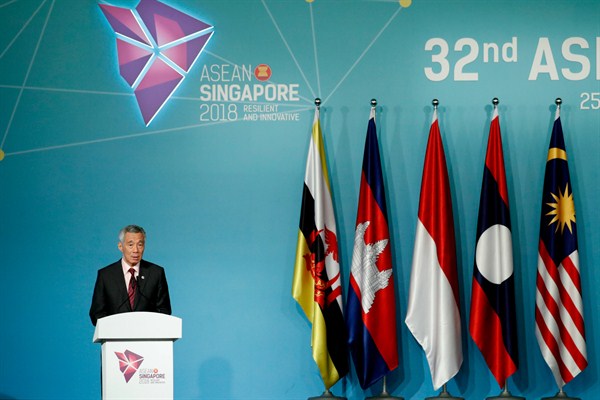The announcement last week that Singapore will be the site of the summit on June 12 between U.S. President Donald Trump and North Korean leader Kim Jong Un—just a week after it will host the annual Shangri-La Dialogue, Asia’s premier security forum—once again put the city-state in the international spotlight. But within its own region of Southeast Asia, Singapore already faced a year of heightened attention and expectations. It holds the annual rotating chair of the Association of Southeast Asian Nations amid a series of domestic, regional and global challenges, and has recently become a more vocal defender of the rules-based international order that Trump’s policies have called into question.
One of the five original founding members of ASEAN back in 1967, Singapore has long considered the regional grouping to be part of its wider foreign policy. The last time Singapore chaired ASEAN in 2007 was the occasion of the bloc’s 40th anniversary, and it saw both heightened scrutiny on ASEAN amid the Saffron Revolution that erupted in Myanmar and historic change with the adoption of a legally binding ASEAN Charter, which formalized the bloc’s previously informal procedures.
2018 is looking like a difficult year, both for Singapore and for ASEAN and Southeast Asia more broadly. Though ASEAN has had a growing role in shaping the regional architecture over the past few years, several trends—from the rising involvement of major powers such as China to the intensifying focus on knotty issues such as the South China Sea—have exposed ASEAN’s liabilities as an institution, including challenges to its role as a central diplomatic actor in the Asia-Pacific.

